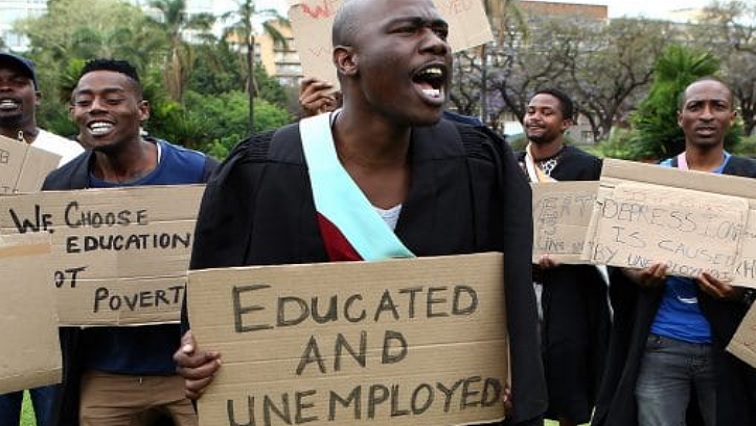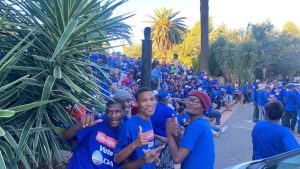Young people in Gqeberha in the Eastern Cape have expressed mixed sentiments on whether or not they are going to vote in this year’s local government elections.
A majority of the young people interviewed, expressed a lack of interest in voting. The reasons they gave include poor service delivery, high youth unemployment, and a general disinterest in politics.
Frustrated, and anti-anything political, these are the views of 30-year-old Abongile Ndukumbana. He lives in a tiny shack with his six siblings in a dilapidated township in Gqeberha.
After being retrenched last year when his company closed because of the coronavirus pandemic, he was forced to move back home.
No one works at his home and Abongile sleeps on the floor, while his six siblings share one bed. He says voting is a waste of time.
“Nothing has changed. I am not happy with the situation that we are living in. As people we are supposed to benefit from this democratic state, we were promised a better life for all. But where is it? It is only a few that benefit what about the majority of us? No employment, no proper shelter, no proper healthcare. What do we have to do? We have to keep on voting for what? For the rich to become richer, for us to become poorer? So, I won’t vote.”
But why vote?
Of the 26.2 million registered voters, the 18 – 29 age group makes up only 17.54%. According to the IEC, in the 2016 Local Government Elections, 71% of those aged 18 and 19 who had registered, voted while 50% of those in the 20 -29 age group, voted.
Chief Research Specialist in democracy and citizenship, Jolene Kotze, elaborates.
“ I think in all possibility, the more realistic the scenario is either a decline in voter turnout or again a limited number of youngest people going out to vote. As I have said before there is almost a perception around this futility of voting, we find in our research that young will say yes it is my civic duty as a citizen to vote, but there is also a very deep sentiment that argues and says, but why vote. I have wasted my vote, nothing changes, my life hasn’t gotten better. What I expected from my vote didn’t actually materialise so why should I go out and do that again?”
While South Africa’s national unemployment rate was 34.4%, in April this year, youth unemployment was at 64.4%.
Unemployement is one of the major issues affecting the South African youth:
This and many other factors have left young people with mixed feelings about this year’s elections.
“I’m not going to take part in this year’s election because I feel like there has really been no change, not only in our country but the people who are in leadership, but maybe as those people change, maybe they add more youth, because they better relate to the stuff that we need and our problems. Until I see more young faces in Parliament, then I’m not going to be voting.”
Another person says; “I don’t know how I feel about voting because I feel like even if you do vote it doesn’t make a difference.”
Analysts believe political parties have a lot of work to do to convince the youth to vote. Showing them the value of their votes, through providing services that are beneficial to the youth is seen as key.






